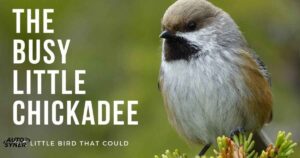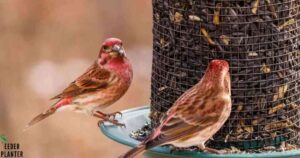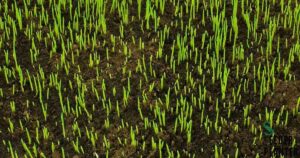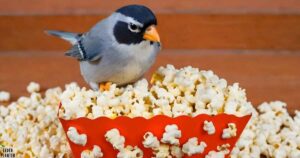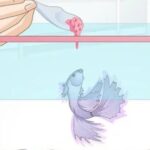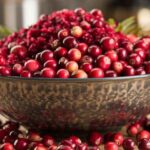As a bird lover, you might have wondered, “Can birds eat popcorn?” It’s a common question that arises when we see our feathered friends eyeing our snacks. Many bird owners and backyard bird enthusiasts are unsure about the safety of offering this popular treat to their avian companions. The uncertainty can lead to concerns about potentially harming our beloved birds.
This comprehensive guide, updated for 2024, will address all your questions about feeding popcorn to birds. We’ll explore the benefits, risks, and best practices for offering popcorn as a treat. By the end of this article, you’ll have a clear understanding of how to safely incorporate popcorn into your birds’ diet, ensuring their health and happiness.
Birds and Popcorn
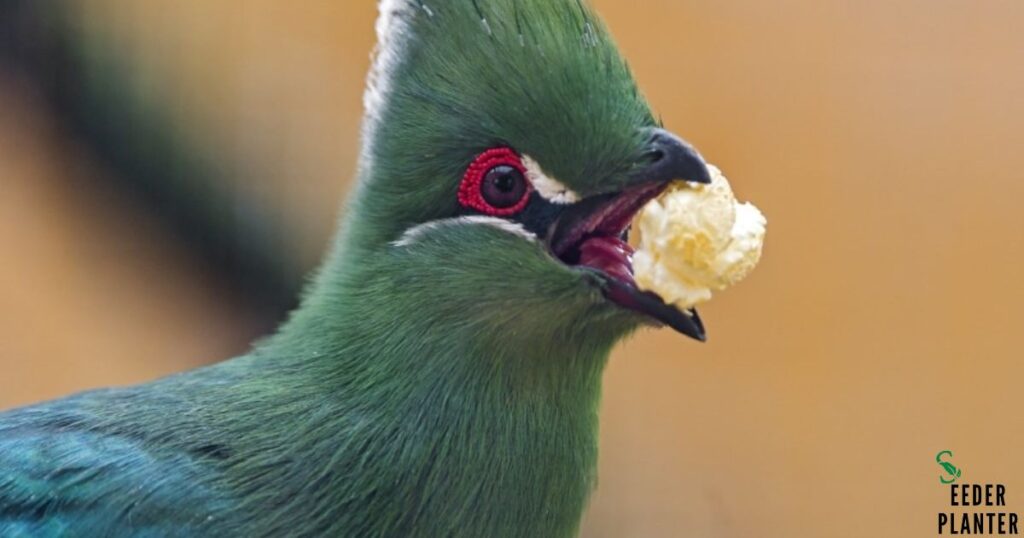
When it comes to bird feeding, many people wonder about the suitability of human snacks for their feathered friends. Popcorn, a popular treat enjoyed by millions worldwide, often comes up in discussions about safe bird treats. As we delve into this topic, it’s crucial to understand why bird enthusiasts are curious about offering popcorn to their avian companions.
The allure of sharing our favorite snacks with birds stems from a desire to bond and provide variety in their diet. However, it’s essential to approach this with caution and knowledge. Birds have specific dietary needs, and not all human foods are suitable for them. This is why the question “Can birds eat popcorn?” deserves a thorough exploration.
The Popularity of Popcorn as a Snack
Popcorn has been a beloved snack for centuries, with its origins dating back to ancient civilizations. In modern times, it’s become a staple at movie theaters, sporting events, and home movie nights. Its widespread popularity naturally leads bird owners and backyard bird watchers to consider it as a potential treat for their feathered friends.
The appeal of popcorn lies in its light, crunchy texture and versatility. It can be prepared in various ways, from air-popped to microwave versions, and flavored with countless seasonings. This variety raises questions about which types, if any, are safe for birds to consume.
Why Bird Owners Ask: Can Birds Eat Popcorn?
Bird owners and enthusiasts often inquire about popcorn’s safety for several reasons. First, they want to ensure they’re not inadvertently harming their avian companions by offering unsuitable foods. Second, many are looking for ways to enrich their birds’ diets and provide engaging treats that can also serve as foraging opportunities.
The question of whether birds can eat popcorn also arises from observations of wild birds in urban settings. People have noticed birds pecking at discarded popcorn in parks or near outdoor theaters, leading to curiosity about whether this is a natural or safe behavior for birds to engage in.
The Truth About Birds and Popcorn
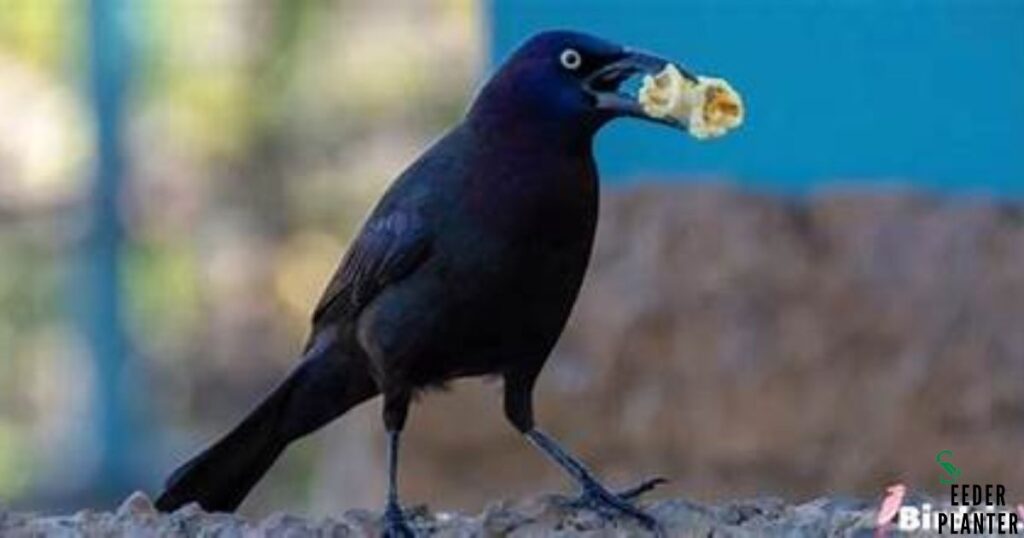
When it comes to the question “Can birds eat popcorn?“, the answer isn’t a simple yes or no. The safety and suitability of popcorn for birds depend on several factors, including the type of popcorn, how it’s prepared, and the species of bird in question. In general, plain, air-popped popcorn can be a safe occasional treat for many birds when offered in moderation.
However, it’s crucial to understand that while some birds can enjoy popcorn, it should never be a significant part of their diet. Birds require a balanced nutrition plan that primarily consists of foods specifically formulated for their species. Popcorn should be viewed as a supplement or treat, not a dietary staple.
Types of Popcorn Birds Might Encounter
Birds may come across various types of popcorn, each with different implications for their health:
- Air-popped popcorn: This is the safest option for birds. It’s free from oils, butter, and additives that could be harmful.
- Microwave popcorn: Often contains oils, salt, and artificial flavorings that are not suitable for birds.
- Movie theater popcorn: Typically loaded with butter and salt, making it unsafe for avian consumption.
- Kettle corn: Contains sugar and often salt, which are not recommended for birds.
- Caramel popcorn: The high sugar content and sticky texture make this a poor choice for birds.
When considering popcorn for birds, always opt for plain, air-popped varieties without any additives.
Potential Benefits of Popcorn for Birds
While popcorn shouldn’t be a primary food source, it can offer some benefits when given in moderation:
- Enrichment: Popcorn can provide a novel texture and taste, enriching a bird’s sensory experience.
- Foraging opportunity: Scattering a few pieces of popcorn can encourage natural foraging behaviors.
- Low-calorie treat: Plain popcorn is relatively low in calories compared to some other treats.
- Fiber content: Popcorn contains some dietary fiber, which can be beneficial for bird digestion when consumed in small amounts.
Remember, these benefits apply only to plain, air-popped popcorn offered occasionally as part of a varied diet.
Potential Risks of Feeding Popcorn to Birds
While plain popcorn can be a safe treat, there are potential risks to consider:
- Choking hazard: Unpopped kernels or large pieces of popcorn can pose a choking risk, especially for smaller birds.
- Additives: Butter, salt, and artificial flavorings can be harmful to birds’ digestive systems.
- Nutritional imbalance: Overfeeding popcorn can lead to nutritional deficiencies if it replaces more nutrient-dense foods in a bird’s diet.
- Dental issues: Hard, unpopped kernels could potentially damage a bird’s beak or cause dental problems.
- Digestive upset: Some birds may have difficulty digesting popcorn, leading to gastrointestinal discomfort.
Always monitor your bird when introducing any new food, including popcorn, and consult with an avian veterinarian if you have concerns.
How to Safely Prepare Popcorn for Birds
If you’ve decided to offer popcorn to your feathered friends, it’s crucial to prepare it safely. The key is to keep it as natural and additive-free as possible. Here’s how to ensure your bird-friendly popcorn is safe and enjoyable for your avian companions.
First and foremost, always choose plain, unseasoned popcorn kernels. Avoid any pre-packaged microwave popcorn or flavored varieties, as these often contain oils, salt, and other additives that can be harmful to birds. The goal is to offer a treat that’s as close to nature as possible while still being enjoyable for your feathered friends.
Choosing the Right Type of Popcorn
When selecting popcorn for your birds, opt for organic, non-GMO kernels if possible. These are less likely to contain pesticide residues that could be harmful to your birds. Look for kernels that are specifically labeled as food-grade and suitable for human consumption, as these will meet higher quality standards.
Avoid any popcorn that’s been treated with preservatives or chemical coatings. These additives might make the popcorn last longer on the shelf, but they’re not suitable for bird consumption. Remember, the simpler the product, the better it is for your avian friends.
Proper Popping Methods for Bird-Safe Popcorn
The safest method for preparing popcorn for birds is air-popping. This technique doesn’t require any oil or additives, resulting in the purest form of popped corn. If you don’t have an air popper, you can use a heavy-bottomed pot on the stove. Here’s a simple method:
- Heat a heavy-bottomed pot over medium heat.
- Add a single layer of kernels to cover the bottom of the pot.
- Cover the pot with a lid, leaving it slightly ajar to allow steam to escape.
- Gently shake the pot back and forth across the burner as the kernels begin to pop.
- Remove from heat once the popping slows to about 2-3 seconds between pops.
Remember, never add salt, butter, or any seasonings to popcorn intended for birds. These additives can be harmful to their delicate systems.
Avoiding Harmful Additives
When preparing popcorn for birds, it’s crucial to avoid any additives that could be harmful. This includes:
- Salt: Birds can’t process excess sodium effectively, which can lead to health issues.
- Butter or oils: These add unnecessary fats and calories to a bird’s diet.
- Sugar: Excessive sugar can lead to obesity and other health problems in birds.
- Artificial flavorings: These chemicals aren’t part of a bird’s natural diet and should be avoided.
By sticking to plain, air-popped popcorn, you ensure that your birds are getting a safe, additive-free treat. Remember, the goal is to provide a fun, occasional snack, not a dietary staple.
Nutritional Value of Popcorn for Birds
Understanding the nutritional value of popcorn for birds is crucial when considering it as a treat. While popcorn shouldn’t be a significant part of a bird’s diet, it does offer some nutritional benefits when given in moderation. Let’s explore what popcorn can contribute to a bird’s nutritional intake.
Plain, air-popped popcorn is primarily a source of carbohydrates. It also contains small amounts of protein and fiber. However, it’s important to note that popcorn lacks many essential nutrients that birds need for optimal health. This is why it should only be offered as an occasional treat and not as a replacement for a balanced bird diet.
Caloric Content of Popcorn for Birds
When considering popcorn as a bird snack, it’s important to understand its caloric content. A cup of air-popped popcorn contains about 31 calories. While this may seem low, it’s important to remember that birds are much smaller than humans and have different caloric needs.
For most bird species, treats like popcorn should make up no more than 10% of their daily caloric intake. Overfeeding popcorn or any treat can lead to obesity and related health issues in birds. Always consider the size of your bird and adjust the portion accordingly. For example, a small finch might only need a single popped kernel as a treat, while a larger parrot could have a few more.
Vitamins and Minerals in Popcorn
While popcorn isn’t a nutrient-dense food for birds, it does contain small amounts of certain vitamins and minerals:
- Vitamin B3 (Niacin): Supports metabolism and nervous system function.
- Vitamin B6: Aids in protein metabolism and red blood cell formation.
- Iron: Essential for oxygen transport in the blood.
- Magnesium: Supports bone health and energy production.
- Phosphorus: Important for bone formation and energy metabolism.
- Zinc: Aids in immune function and wound healing.
However, it’s crucial to remember that these nutrients are present in very small quantities. Birds should primarily get their vitamins and minerals from a balanced diet of specially formulated bird food and appropriate fresh fruits and vegetables.
Fiber Content and Its Importance for Birds
One of the notable nutritional aspects of popcorn is its fiber content. A cup of air-popped popcorn contains about 1.2 grams of fiber. Fiber is important for birds as it aids in digestion and can help prevent constipation.
However, while fiber is beneficial, too much can interfere with the absorption of other nutrients. This is another reason why popcorn should only be offered in moderation. The fiber in a bird’s diet should primarily come from their regular food sources, including fresh fruits and vegetables, rather than treats like popcorn.
Birds That Will Eat Popcorn
Many bird species, both wild and domesticated, show interest in popcorn when offered. However, it’s important to remember that just because a bird will eat popcorn doesn’t mean it should be a regular part of their diet. Let’s explore which birds are known to enjoy popcorn and how it fits into their dietary habits.
It’s crucial to note that while many birds may eat popcorn, it should always be offered in moderation and as part of a varied diet. The primary nutrition for any bird should come from foods specifically formulated for their species and nutritional needs.
Wild Birds That Enjoy Popcorn
Many backyard birds will happily munch on plain, air-popped popcorn if offered. Some common wild birds that might eat popcorn include:
- Pigeons and doves
- Crows and ravens
- Jays (including Blue Jays)
- Starlings
- Grackles
- Sparrows
- Finches
- Cardinals
These birds are often opportunistic feeders and may view popcorn as an easy food source. However, it’s important to remember that feeding popcorn to backyard birds should not replace offering more nutritious options like seeds, nuts, and fruits that are more aligned with their natural diets.
Pet Birds That Can Safely Eat Popcorn
Many pet bird species can enjoy popcorn as an occasional treat. Some common pet birds that might safely eat small amounts of plain, air-popped popcorn include:
- Parrots (various species)
- Cockatiels
- Budgerigars (Budgies)
- Lovebirds
- Conures
- African Grey Parrots
- Macaws
- Cockatoos
When offering popcorn to pet birds, it’s crucial to ensure it’s plain and free from any additives. Always introduce new foods slowly and in small amounts to monitor for any adverse reactions.
Birds That Should Avoid Popcorn
While many birds can safely enjoy small amounts of popcorn, there are some that should avoid it altogether:
- Nectar-feeding birds (like hummingbirds)
- Insectivorous birds
- Waterfowl (ducks, geese)
- Very small birds (like finches) might struggle with larger popcorn pieces
Additionally, any bird with known digestive issues or specific dietary restrictions should avoid popcorn. Always consult with an avian veterinarian before introducing new foods to your pet bird’s diet, especially if they have any health concerns.
How to Feed Popcorn to Birds
If you’ve decided to offer popcorn as an occasional treat to your feathered friends, it’s important to do so safely and responsibly. Feeding popcorn to birds requires some consideration to ensure it’s a positive experience for them. Here are some guidelines to follow when offering popcorn to birds.
Remember, popcorn should never replace a bird’s regular diet. It should be viewed as an occasional treat or enrichment activity, not a dietary staple. Always prioritize a balanced, species-appropriate diet for optimal bird health.
Read This Blog: The Ultimate Guide: How to Germinate Pot Seeds Successfully in 2024
Portion Control: How Much Popcorn Can Birds Eat?
When it comes to feeding popcorn to birds, moderation is key. The amount of popcorn a bird can safely consume depends on its size and species. As a general rule, treats like popcorn should make up no more than 10% of a bird’s daily food intake.
Here’s a rough guide for portion sizes:
- Small birds (like finches or budgies): 1-2 popped kernels
- Medium birds (like cockatiels or conures): 3-5 popped kernels
- Large birds (like African greys or macaws): 5-10 popped kernels
Remember, these are maximum amounts and should not be offered daily. It’s always better to err on the side of caution and offer less rather than more.
Frequency of Feeding Popcorn to Birds
Popcorn should be considered an occasional treat, not a regular part of a bird’s diet. For most birds, offering popcorn once a week or less is sufficient. This infrequency helps ensure that the treat doesn’t displace more nutritious foods in the bird’s diet.
If you’re using popcorn as part of enrichment activities or training, you might offer it more frequently but in smaller amounts. Always monitor your bird’s overall diet and adjust treat offerings accordingly.
Also Read This Blog: What Birds Eat Safflower Seeds: A Birdwatcher’s Guide to This Nutritious Treat
Creative Ways to Serve Popcorn to Birds
Making popcorn an engaging treat for birds can be fun and stimulating for them. Here are some creative ideas for serving popcorn to birds:
- Foraging toys: Place a few pieces of popcorn in puzzle toys or foraging balls to encourage natural foraging behaviors.
- Popcorn garlands: String plain popcorn onto bird-safe string to create a festive and edible decoration for outdoor birds.
- Mixed treat cups: Combine a few pieces of popcorn with other bird-safe treats in a small cup or dish.
- Training rewards: Use single pieces of popcorn as rewards during training sessions with pet birds.
- **Popcorn “snow”: Sprinkle a small amount of crushed popcorn over your bird’s regular food for added texture and interest.
Remember, any serving method should prioritize the bird’s safety. Avoid using materials that could be harmful if ingested, and always supervise your bird when offering new treats or enrichment activities.
Alternatives to Popcorn for Birds
While popcorn can be a fun occasional treat for birds, it’s important to remember that there are many other options that can provide greater nutritional benefits. Offering a variety of
Frequently Asked Question
Is it safe to feed popcorn to birds?
Yes, it can be safe to feed plain, air-popped popcorn to birds in moderation. However, it’s crucial to avoid any popcorn with additives like salt, butter, or seasonings. Always offer popcorn as an occasional treat, not as a primary food source.
What animals can eat popcorn?
Many animals can eat plain popcorn in moderation, including birds, squirrels, and deer. However, it’s not a natural part of their diet and should be offered sparingly, if at all.
Is corn okay for birds?
Yes, corn can be okay for birds. Many bird species eat corn in various forms, including whole kernels, cracked corn, and even corn on the cob. However, like popcorn, it should be part of a varied diet and not the main food source.
Can I give chickens popcorn?
Chickens can eat plain, air-popped popcorn as an occasional treat. However, it shouldn’t replace their regular feed and should be given in moderation. Avoid flavored or salted popcorn for chickens.
Can birds eat rice?
Yes, birds can eat rice, both cooked and uncooked. The myth that uncooked rice is harmful to birds has been debunked. Many wild birds eat rice in their natural habitats.
Can birds eat chocolate?
No, birds should never eat chocolate. Chocolate contains theobromine and caffeine, which can be toxic to birds, even in small amounts. Always keep chocolate away from birds and other pets.
Conclusion
As we wrap up our exploration of whether birds can eat popcorn, it’s clear that this snack can be a fun, occasional treat for our feathered friends when offered responsibly.
Like a surprise sprinkle of joy in their diet, popcorn can add a little pop of excitement to a bird’s day. However, just as we wouldn’t build a house solely with decorative tiles, we shouldn’t construct a bird’s diet primarily with treats.
Remember, moderation is key. Think of popcorn for birds like the cherry on top of a sundae – a small, fun addition, but not the main event. By following the guidelines we’ve discussed, you can ensure that your avian companions enjoy this treat safely, all while maintaining a balanced, nutritious diet.
So go ahead, share a kernel or two with your feathered friends, and watch their beaks perk up with delight!

I am Alexander James, a seasoned professional with 4 years of expertise, brings passion and skill to every project. Elevate your experience with my knowledge and creativity.
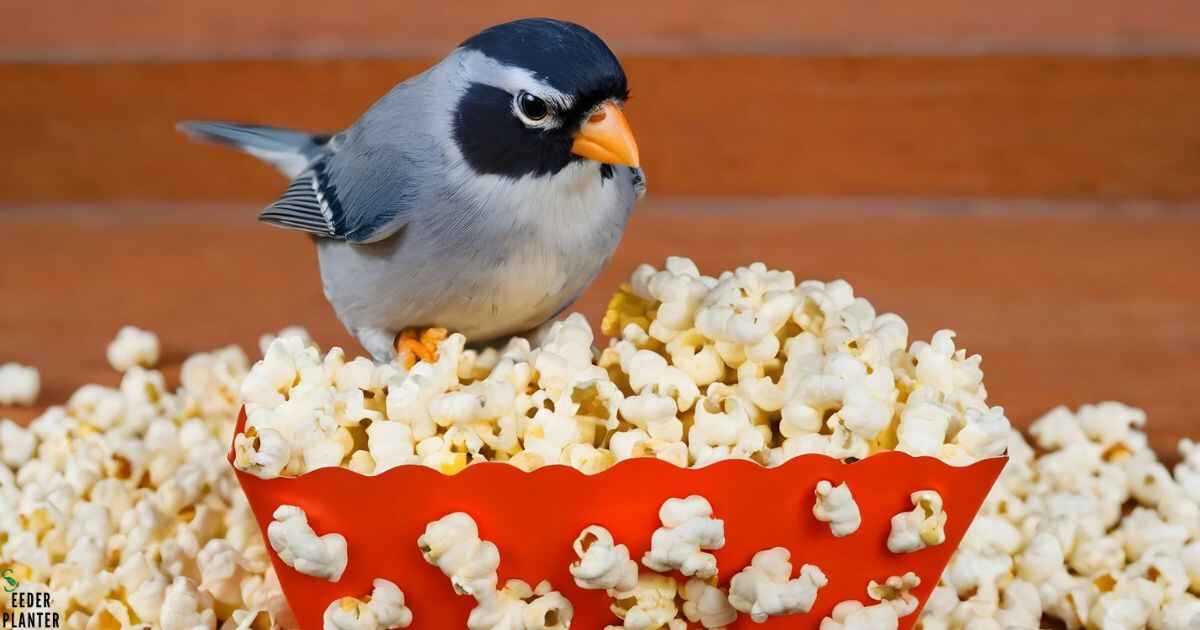

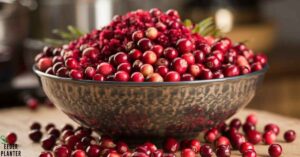
![Hollyhock Seeds: The Complete Guide to Success [2024]](https://seederabout.com/wp-content/uploads/2024/10/Hollyhock-Seeds-The-Complete-Guide-to-Success-2024-300x157.jpg)
